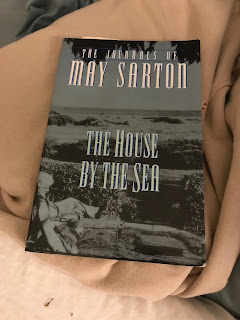"And at fifty, Less muses drowsily, you're as likeable as you're going to get."
I experienced a strange transition reading this novel. I didn't think I was going to like it for a while. I wasn't even sure I would finish it. It just wasn't catching my attention. I don't know why. But then, about the time Less gets to Morocco, which is toward the end of the book, I loved it.
A lot of the book was too much hapless Less mess for me, and I got tired of it. Maybe that was my problem with it. Maybe it was just because Zohra was the only character I could personally identify with, and she doesn't show up until Morocco. Maybe it was just due to my mood. Who knows?
In the end, though, I enjoyed the book and am glad I read it. It was definitely laugh out loud funny in many places.




